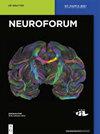气候变化下表型可塑性的神经生物学
Q3 Medicine
引用次数: 0
摘要
摘要表型可塑性描述了具有特定基因型的生物体通过适应表型来应对不断变化的环境条件的能力。表型可塑性是一种广泛的适应手段,使生物体能够在不断变化的环境中优化适应水平。适应性预测可塑性的核心前提是存在可靠的线索,即关于表达的可塑性表型的未来选择的准确环境信息。此外,生物体需要依靠特定的感觉信号和神经元级联来检测和解释这些线索的能力。随后的神经激素变化导致表型A转化为表型B。这些活动中的每一项都对生存至关重要。因此,任何可能损害动物感知重要化学信息能力的东西都可能产生重大的生态影响。气候变化和其他人类压力源可以作用于这种信号级联的单个或所有组成部分。因此,生物体可能会失去它们的适应潜力,或者在最坏的情况下,甚至变得不适应。因此,了解调节生物体与环境相互作用的感觉系统、神经生物学和生理适应是关键。因此,预测全球人类力量对整个生态系统的影响至关重要。这篇综述总结了气候变化如何影响表型可塑性的最新见解,重点是相关的压力源如何改变信号剂、感觉系统、受体反应和神经元信号级联,从而损害表型适应。本文章由计算机程序翻译,如有差异,请以英文原文为准。
Neurobiology of phenotypic plasticity in the light of climate change
Abstract Phenotypic plasticity describes the ability of an organism with a given genotype to respond to changing environmental conditions through the adaptation of the phenotype. Phenotypic plasticity is a widespread means of adaptation, allowing organisms to optimize fitness levels in changing environments. A core prerequisite for adaptive predictive plasticity is the existence of reliable cues, i.e. accurate environmental information about future selection on the expressed plastic phenotype. Furthermore, organisms need the capacity to detect and interpret such cues, relying on specific sensory signalling and neuronal cascades. Subsequent neurohormonal changes lead to the transformation of phenotype A into phenotype B. Each of these activities is critical for survival. Consequently, anything that could impair an animal’s ability to perceive important chemical information could have significant ecological ramifications. Climate change and other human stressors can act on individual or all of the components of this signalling cascade. In consequence, organisms could lose their adaptive potential, or in the worst case, even become maladapted. Therefore, it is key to understand the sensory systems, the neurobiology and the physiological adaptations that mediate organisms’ interactions with their environment. It is, thus, pivotal to predict the ecosystem-wide effects of global human forcing. This review summarizes current insights on how climate change affects phenotypic plasticity, focussing on how associated stressors change the signalling agents, the sensory systems, receptor responses and neuronal signalling cascades, thereby, impairing phenotypic adaptations.
求助全文
通过发布文献求助,成功后即可免费获取论文全文。
去求助
来源期刊

Neuroforum
NEUROSCIENCES-
CiteScore
1.70
自引率
0.00%
发文量
30
期刊介绍:
Neuroforum publishes invited review articles from all areas in neuroscience. Readership includes besides basic and medical neuroscientists also journalists, practicing physicians, school teachers and students. Neuroforum reports on all topics in neuroscience – from molecules to the neuronal networks, from synapses to bioethics.
 求助内容:
求助内容: 应助结果提醒方式:
应助结果提醒方式:


